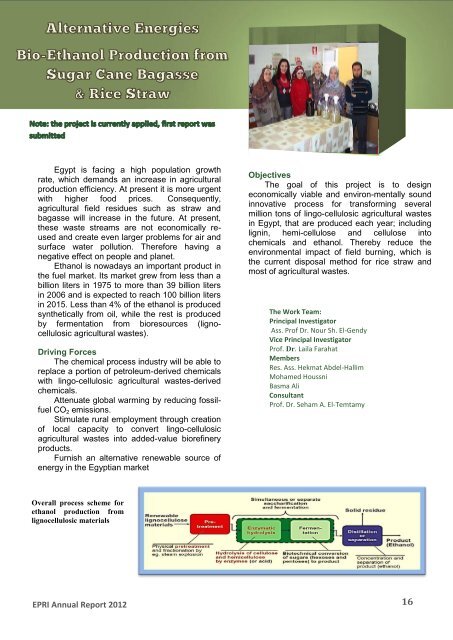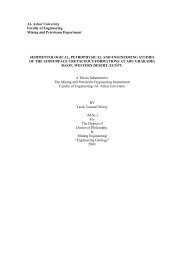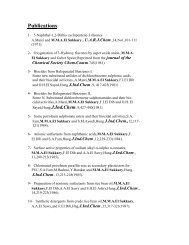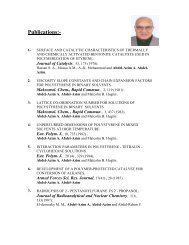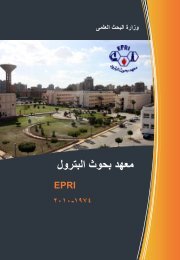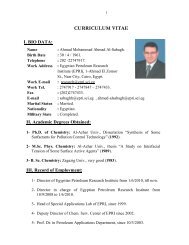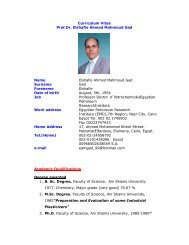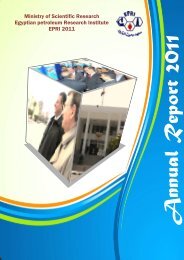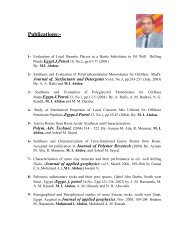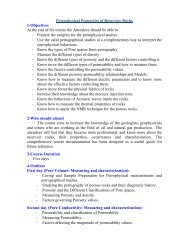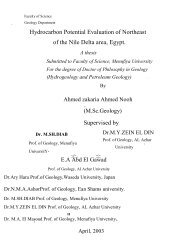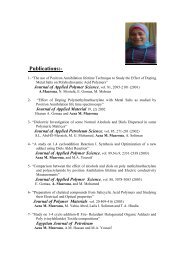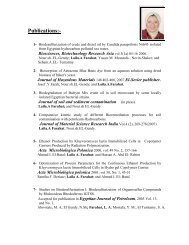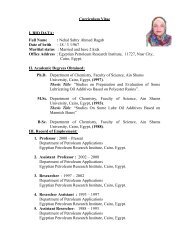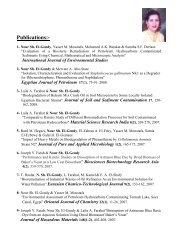Download - Egyptian Petroleum Research Institute
Download - Egyptian Petroleum Research Institute
Download - Egyptian Petroleum Research Institute
Create successful ePaper yourself
Turn your PDF publications into a flip-book with our unique Google optimized e-Paper software.
Egypt is facing a high population growth<br />
rate, which demands an increase in agricultural<br />
production efficiency. At present it is more urgent<br />
with higher food prices. Consequently,<br />
agricultural field residues such as straw and<br />
bagasse will increase in the future. At present,<br />
these waste streams are not economically reused<br />
and create even larger problems for air and<br />
surface water pollution. Therefore having a<br />
negative effect on people and planet.<br />
Ethanol is nowadays an important product in<br />
the fuel market. Its market grew from less than a<br />
billion liters in 1975 to more than 39 billion liters<br />
in 2006 and is expected to reach 100 billion liters<br />
in 2015. Less than 4% of the ethanol is produced<br />
synthetically from oil, while the rest is produced<br />
by fermentation from bioresources (lignocellulosic<br />
agricultural wastes).<br />
Driving Forces<br />
The chemical process industry will be able to<br />
replace a portion of petroleum-derived chemicals<br />
with lingo-cellulosic agricultural wastes-derived<br />
chemicals.<br />
Attenuate global warming by reducing fossilfuel<br />
CO 2 emissions.<br />
Stimulate rural employment through creation<br />
of local capacity to convert lingo-cellulosic<br />
agricultural wastes into added-value biorefinery<br />
products.<br />
Furnish an alternative renewable source of<br />
energy in the <strong>Egyptian</strong> market<br />
Objectives<br />
The goal of this project is to design<br />
economically viable and environ-mentally sound<br />
innovative process for transforming several<br />
million tons of lingo-cellulosic agricultural wastes<br />
in Egypt, that are produced each year; including<br />
lignin, hemi-cellulose and cellulose into<br />
chemicals and ethanol. Thereby reduce the<br />
environmental impact of field burning, which is<br />
the current disposal method for rice straw and<br />
most of agricultural wastes.<br />
The Work Team:<br />
Principal Investigator<br />
Ass. Prof Dr. Nour Sh. El-Gendy<br />
Vice Principal Investigator<br />
Prof. Dr. Laila Farahat<br />
Members<br />
Res. Ass. Hekmat Abdel-Hallim<br />
Mohamed Houssni<br />
Basma Ali<br />
Consultant<br />
Prof. Dr. Seham A. El-Temtamy<br />
Overall process scheme for<br />
ethanol production from<br />
lignocellulosic materials<br />
EPRI Annual Report 2012 16


